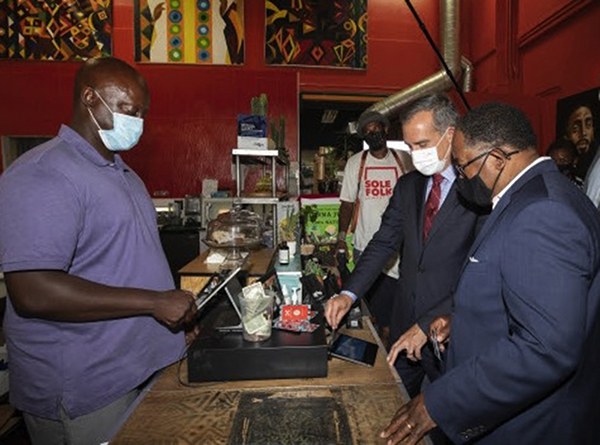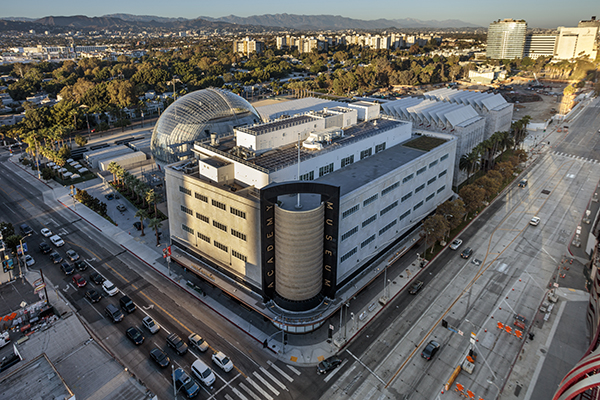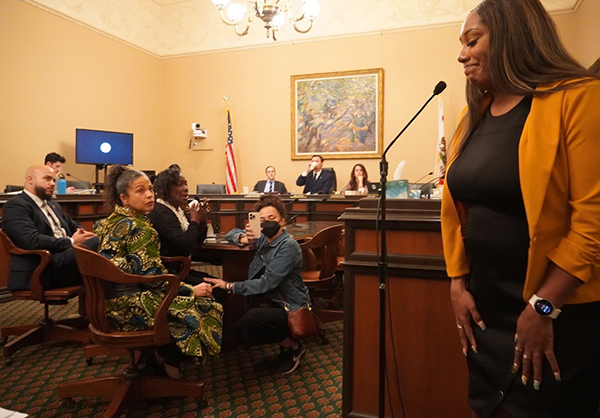South L.A. community protests persist as fears deepen despite ICE pullout

SOUTH LOS ANGELES — Several community organizations united on July 29 to “Reclaim Our Streets” and reinforce demands that federal Immigration and Customs Enforcement personnel leave the city immediately.
Though a significant number of National Guard and U.S. Marines troops have been pulled out of Los Angeles, ICE agents continue to sweep through neighborhoods and places of employment to detain suspected undocumented immigrants.
“The kidnappings are still happening and we’re not going to stand for it,” said Leslie Johnson, chief culture officer at Community Coalition, one of the agencies that brought nearly 500 people together to protest immigration policies implemented by President Donald Trump since early June.
After a press conference at the offices of Strategic Concepts in Organizing and Policy Education (SCOPE), the largely Hispanic group walked a half-mile to the corner of Florence and Normandie avenues for a brief program in the Auto Zone parking lot.
During the walk along Florence Avenue, motorists honked their horns in support of the group. Many people in the group carried signs displaying “Reclaim Our Streets,” “Not In Our City,” and “ICE Leave South Central.”
Employees at several businesses along Florence stopped working to applaud the group as they passed by.
“Through this connection, we have power,” said Alejandro Villalapando, a professor at Cal State Los Angeles and chairperson of the school’s Council of Racial and Social Justice Faculty Association. “We cannot have a state or government attacking the most vulnerable. My brother has diabetes. He’s afraid to go to a doctor to get care.”
Villalapando, a native of Guatemala, has lived in South Los Angeles since his parents immigrated from Guatemala. The story of his brother fearful of venturing outside his home was echoed by many participants in the rally.
Johnson said the number of residents that normally stop by Community Coalition for various services has dropped.
“We’re not seeing the people we used to see on a regular basis,” Johnson said. “The people are still in the community, but they’re staying home, living in fear. This has got to stop. We will not let armed, masked men continue abducting our neighbors.”
As a precaution, representatives of Community Coalition, TRUST South LA, Community Development Technologies (CD Tech) and the Alliance of Californians for Community Empowerment (ACCE) contacted the Los Angeles Police Department and other law agencies to alert them of the planned march.
Several LAPD vehicles cruised down Florence Avenue during the march but did not stop. No ICE agents or vehicles were spotted in the area.
ICE agents have used surprise tactics at routine gathering spots or places of employment to detain suspected undocumented immigrants.
“So many of our colleagues are scared,” said SCOPE staffer Iretha Warmsley, who coordinated the press conference. “This is the moment where solidarity matters the most. We have to let go of our prejudices and fight the real enemy.”
Pablo Calvazchan, a native of Guatemala, was working his sales clerk job on June 6 at a store in the Fashion District in downtown Los Angeles. A half hour after the store opened, a patrol of ICE agents rushed in and arrested Calvazchan and other employees.
When Calvazchan and the employees resisted, Calvazchan said National Guard troops were called in to support the ICE agents.
Calvazchan, 28, spent more than a month in a detention center near San Bernardino before he was released two weeks ago. He’s not allowed to work until his immigration status is verified at a court hearing scheduled for Aug. 12.
“I need money to cover my rent,” said Calvazchan, a participant in the march. “I hope I can work soon.”
In the meantime, Calvazchan said he must report his whereabouts periodically to ICE administration staff, a check-in procedure similar to offenders who are required to stay in contact with probation officers.
Calvazchan has lived in Los Angeles since 2017 with his brother, a cousin and an aunt. He insists he is not a “criminal.”
“We were treated like criminals,” Calvazchan said of his detention. “On the day we were arrested, we didn’t get any food until about 9 that night. I’ve never been through anything like that. I came to America to work and help support my family. I hope I can stay here.”
Ray Richardson is a contributing writer for The Wave. He can be reached at rayrich55@gmail.com.





